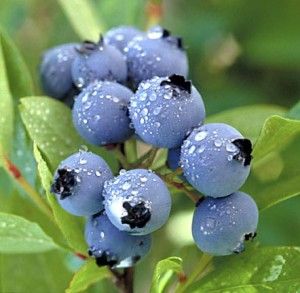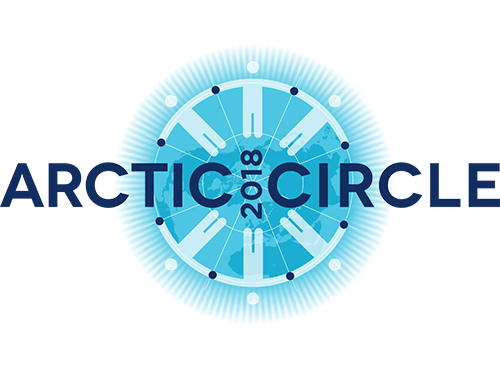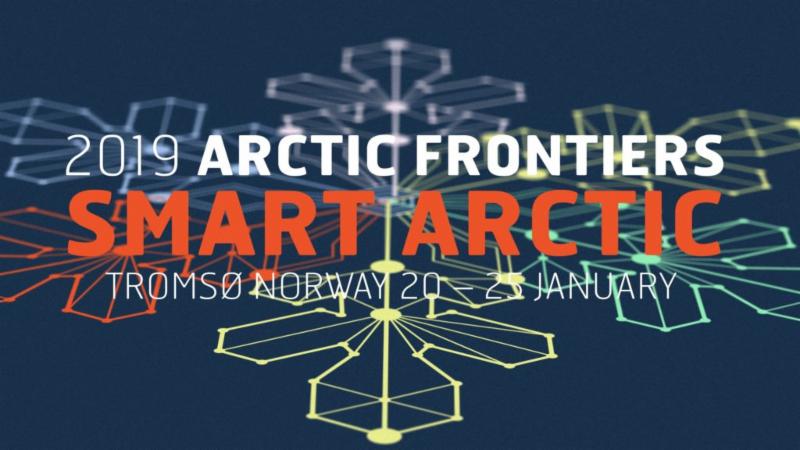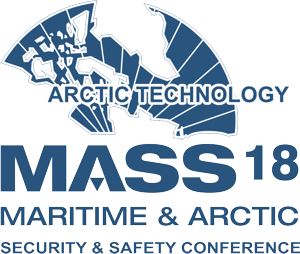|
|
|
|
|
|
|
|
No Arctic-science events are scheduled for today.
|
Media
With Thick Ice Gone, Arctic Sea Ice Changes More Slowly. The Arctic Ocean's blanket of sea ice has changed since 1958 from predominantly older, thicker ice to mostly younger, thinner ice, according to new research published by NASA scientist Ron Kwok of the Jet Propulsion Laboratory in Pasadena, California. With so little thick, old ice left, the rate of decrease in ice thickness has slowed. New ice grows faster but is more vulnerable to weather and wind, so ice thickness is now more variable, rather than dominated by the effect of global warming. Phys.org
 Finland, Arctic Neighbors Pledge to Reduce Black Coal Emissions. Finland, Arctic Neighbors Pledge to Reduce Black Coal Emissions. Environment ministers of Arctic states said Friday that they want to cut down on the use of black coal, which has been linked to accelerated warming of the planet and the melting of glaciers in the Arctic. "The Arctic region warms up two or three times faster than the rest of the globe on average," Finnish Environment Minister Kimmo Tiilikainen said during a press conference at the recently-concluded Arctic Biodiversity Congress in Rovaniemi. YLE News
 High Arctic Plant Spurts Raise Climate Concerns. High Arctic Plant Spurts Raise Climate Concerns. The Arctic is becoming greener, warmer and leafier as small plants that once hugged the ground to trap snow and insulate their roots in the permafrost have started to gain in stature. In the high latitudes, plants have begun to respond to climate change and warmer, moister soils by reaching for the sky. It is estimated that, by 2100, the northernmost vegetation could have grown by up to 60% taller. Physics World
Sahara Deserts Sand is Finding a Newer, Quicker Route to the Arctic, Sparks Global Warming Fears. Millions of tonnes of Sahara desert dust being blown to the Arctic at rapid rates could speed up global warming, Abu Dhabi researchers revealed days after a UN report said the world has just 12 years to tackle climate change. Huge plumes of dust being transported from North Africa to the Arctic on a new, shorter route could have stark consequences for climate change, new research from New York University Abu Dhabi (NYUAD) has found. The revelation came through a study of a 2011 cyclone over Morocco that carried 38 million tonnes of dust, depositing 1.3 million tonnes of it in the Arctic. The National Scientists and Leaders Gather in Finnish North to Talk Arctic Biodiversity. Finnish President Sauli Niinistö was also in attendance at this week's congress, which began, well, above the Arctic Circle, in Lapland's city of Rovaniemi on Tuesday. Niinistö opened the four-day congress by pointing out what was likely already on many attendees' minds, a report issued Monday by IPCC - the UN's Intergovernmental Panel on Climate Change - which said that avoiding global climate chaos will require an unprecedented transformation of society and the world economy, and that time is running out to avoid disaster. The Barents Observer
|
|
Future Events
 Arctic Circle Assembly, October 19-21, 2018 (Reykjavik, Iceland). The annual Arctic Circle Assembly is the largest annual international gathering on the Arctic, attended by more than 2000 participants from 60 countries. It is attended by heads of states and governments, ministers, members of parliaments, officials, experts, scientists, entrepreneurs, business leaders, indigenous representatives, environmentalists, students, activists and others from the growing international community of partners and participants interested in the future of the Arctic. Arctic Circle Assembly, October 19-21, 2018 (Reykjavik, Iceland). The annual Arctic Circle Assembly is the largest annual international gathering on the Arctic, attended by more than 2000 participants from 60 countries. It is attended by heads of states and governments, ministers, members of parliaments, officials, experts, scientists, entrepreneurs, business leaders, indigenous representatives, environmentalists, students, activists and others from the growing international community of partners and participants interested in the future of the Arctic.
Arctic Science Forum Associated with the 2nd Arctic Science Ministerial, October 25, 2018 (Berlin, Germany and via webcast). How vulnerable and how resilient are nature and the people of the Arctic region? How well do we understand the regional and global dynamics which are driving change in the Arctic? What impact will change in the Arctic have on us? These and other questions are the focus of this two-day conference. It will take interdisciplinary research in the Arctic to gain an understanding of past and future processes - a complex and cost-intensive venture. This makes an international network of Arctic research so important for delivering better results. Cooperation in research, the exchange of data, collaborative observation and monitoring schemes - international cooperation is imperative in research on the Arctic.
Only the Science Forum, on October 25th, will be webcast. The Arctic Ministerial, on October 26th, will NOT be webcast.
aim of this Government of Canada and the Government of Newfoundland and Labrador supported international conference is to promote stakeholder collaboration, technological innovation, harsh environment research & development, and world-class education efforts that are contributing to both Maritime and Arctic issues. This two day conference will draw a diverse group of speakers and attendees representing government, military, Canadian and U.S. Coast Guard, industry, academic leaders, Northern Leaders, research and other key stakeholders. We hope you can join us to be a part of this important dialogue
American Geophysical Union Fall meeting, December 10-14, 2018 (Washington, DC USA). The AGU 2018 Fall Meeting will mark another dynamic year of discovery in Earth and space science, serve as the advent of AGU's Centennial year, and provide a special opportunity to share our science with world  leaders in Washington, D.C. As the largest Earth and space science gathering in the world, the Fall Meeting places you in the center of a global community of scientists drawn from myriad fields of study whose work protects the health and welfare of people worldwide, spurs innovation, and informs decisions that are critical to the sustainability of the Earth.
ArcticNet: Annual Scientific Meeting 2018, December 10-14, 2018 (Ottawa, ON Canada). Canada's North is experiencing unprecedented change in its sea and terrestrial ice, permafrost and ecosystems under the triple pressures of climate change, industrialization and modernization. The impacts of these pressures can be seen on food and energy security, shipping, sovereignty, northern community health and well-being, and sustainable development and resource exploitation. All these issues have brought the North to the forefront of national and international agendas. Building on the success of its previous Annual Scientific Meetings and International Arctic Change Conferences, the Arctic Network of Centers of Excellence announces the 14th ArcticNet Annual Scientific Meeting.
 Arctic Frontiers, January 20-25, 2019 (Tromso, Norway). The Arctic Frontiers is a global scientific conference on economic, societal, and environmental sustainable growth. This year's theme will be "Smart Arctic," with a pan-arctic emphasis, and an effort to build new partnerships across nations, generations and ethnic groups. Arctic Frontiers provides a forum for dialogue and communication between science, government and industry. The plenary program will have five main sessions: State of the Arctic, Blue Growth, Smart Solutions, Bridging the Gap, and Arctic business prospects. An abstract-driven science program will address Plastics in the Ocean, the Future of Governance and Handling Vulnerability in Arctic Ecosystems, State of the Arctic and A Smart Arctic Future.
 of the AAG includes over 8,500 geographers converging from the U.S., Canada, and nearly 60 other countries in a typical year including geographers, GIS specialists, environmental scientists, and other leaders for the latest in research and applications in geography, sustainability, and GIScience. of the AAG includes over 8,500 geographers converging from the U.S., Canada, and nearly 60 other countries in a typical year including geographers, GIS specialists, environmental scientists, and other leaders for the latest in research and applications in geography, sustainability, and GIScience.
|
|

  
4350 N. Fairfax Drive, Suite 510
Arlington, VA 22203, USA
External links in this publication, and on the USARC's World Wide Web site ( www.arctic.gov) do not constitute endorsement by the US Arctic Research Commission of external Web sites or the information, products or services contained therein. For other than authorized activities, the USARC does not exercise any editorial control over the information you may find at these locations. These links are provided consistent with the stated purpose of this newsletter and the USARC Web site.
|
|
|
|
|
|
|
|
|
 Finland, Arctic Neighbors Pledge to Reduce Black Coal Emissions. Environment ministers of Arctic states said Friday that they want to cut down on the use of black coal, which has been linked to accelerated warming of the planet and the melting of glaciers in the Arctic. "The Arctic region warms up two or three times faster than the rest of the globe on average," Finnish Environment Minister Kimmo Tiilikainen said during a press conference at the recently-concluded Arctic Biodiversity Congress in Rovaniemi. YLE News
Finland, Arctic Neighbors Pledge to Reduce Black Coal Emissions. Environment ministers of Arctic states said Friday that they want to cut down on the use of black coal, which has been linked to accelerated warming of the planet and the melting of glaciers in the Arctic. "The Arctic region warms up two or three times faster than the rest of the globe on average," Finnish Environment Minister Kimmo Tiilikainen said during a press conference at the recently-concluded Arctic Biodiversity Congress in Rovaniemi. YLE News High Arctic Plant Spurts Raise Climate Concerns. The Arctic is becoming greener, warmer and leafier as small plants that once hugged the ground to trap snow and insulate their roots in the permafrost have started to gain in stature. In the high latitudes, plants have begun to respond to climate change and warmer, moister soils by reaching for the sky. It is estimated that, by 2100, the northernmost vegetation could have grown by up to 60% taller. Physics World
High Arctic Plant Spurts Raise Climate Concerns. The Arctic is becoming greener, warmer and leafier as small plants that once hugged the ground to trap snow and insulate their roots in the permafrost have started to gain in stature. In the high latitudes, plants have begun to respond to climate change and warmer, moister soils by reaching for the sky. It is estimated that, by 2100, the northernmost vegetation could have grown by up to 60% taller. Physics World

 must-attend event to gain a wide perspective on challenges, opportunities and policies related to the Arctic and North Atlantic maritime environments. The
must-attend event to gain a wide perspective on challenges, opportunities and policies related to the Arctic and North Atlantic maritime environments. The 
